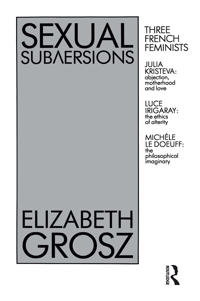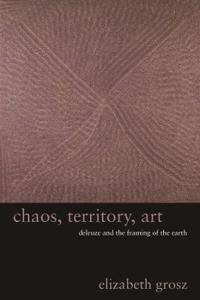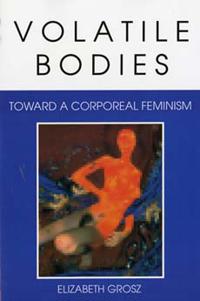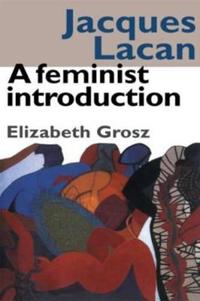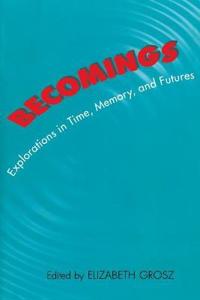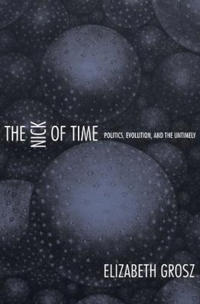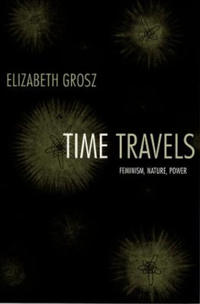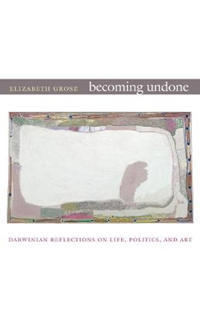Sexual Subversions (Pocket)
avElizabeth Grosz
ISBN: 9780043510728 - UTGIVEN: 1989-07Introducing the work of three French feminists - Julia Kristeva, Luce Irigaray and Michele L Doeuff - "Sexual Subversions" provides access to the work of these writers. In doing so this book raises some key issues of relevance to feminist research, addressing debates around the nature of feminist th[...]
Chaos, Territory, Art (Inbunden)
avElizabeth Grosz
ISBN: 9780231145183 - UTGIVEN: 200805Instead of treating art as a unique creation that requires reason and refined taste to appreciate, Elizabeth Grosz argues that art-especially architecture, music, and painting-is born from the disruptive forces of sexual selection. She approaches art as a form of erotic expression connecting sensory[...]
Volatile Bodies (Häftad)
avElizabeth Grosz
ISBN: 9780253208620 - UTGIVEN: 199406"The location of the author's investigations, the body itself rather than the sphere of subjective representations of self and of function in cultures, is wholly new...I believe this work will be a landmark in future feminist thinking". (Alphonso Lingis). "This is a text of rare erudition and intell[...]
Architecture from the Outside (Häftad)
avElizabeth Grosz, Cynthia Davidson
ISBN: 9780262571494 - UTGIVEN: 200108To be outside allows one a fresh perspective on the inside. In these essays, philosopher Elizabeth Grosz explores the ways in which two disciplines that are fundamentally outside each another--architecture and philosophy--can meet in a third space to interact free of their internal constraints. "Out[...]
Jacques Lacan (Häftad)
avElizabeth Grosz
ISBN: 9780415014007 - UTGIVEN: 199008Grosz gives a critical overview of Lacan's work from a feminist perspective. Discussing previous attempts to give a feminist reading of his work, she argues for women's autonomy based on an indifference to the Lacanian phallus.[...]
The Nick of Time (Häftad)
avElizabeth Grosz
ISBN: 9780822333975 - UTGIVEN: 200501In this path-breaking philosophical work, Elizabeth Grosz points the way toward a theory of becoming to replace the prevailing ontologies of being in social, political, and biological discourse. Arguing that theories of temporality have significant and underappreciated relevance to the social dimens[...]
Time Travels (Pocket)
avElizabeth Grosz
ISBN: 9780822335665 - UTGIVEN: 200508While concepts of time underlie many of the central projects of feminist theory, law and justice, and the natural sciences as well as ideas about political struggle, temporality is rarely their direct object of analysis. In her essays brought together in this volume, Elizabeth Grosz moves questions [...]
Becoming Undone (Häftad)
avElizabeth Grosz
ISBN: 9780822350712 - UTGIVEN: 201110In Becoming Undone, Elizabeth Grosz addresses three related conceptsolife, politics, and artoby exploring the implications of Charles Darwin's account of the evolution of species. Challenging characterizations of Darwin's work as a form of genetic determinism, Grosz points out that his writing revea[...]

